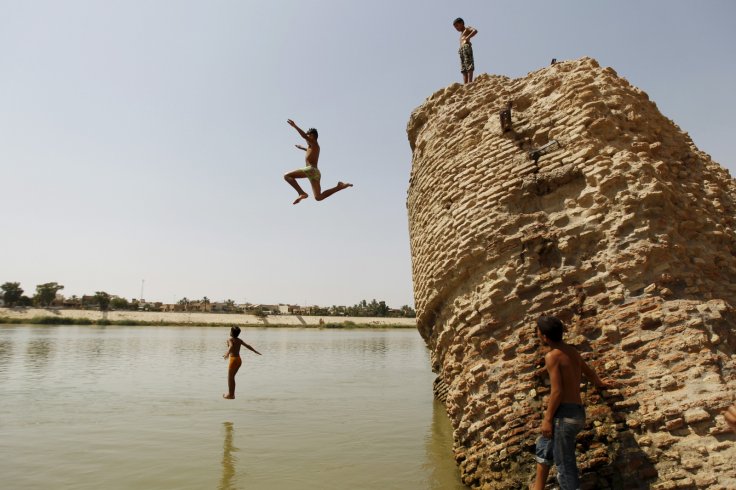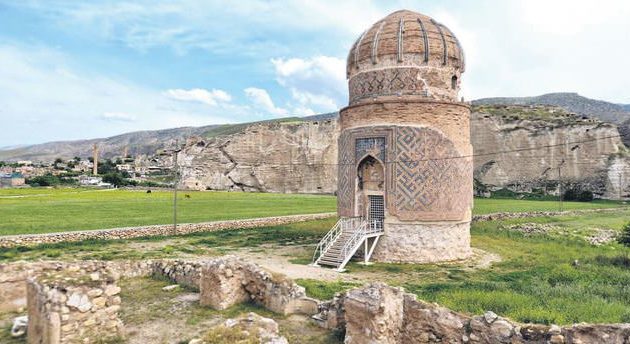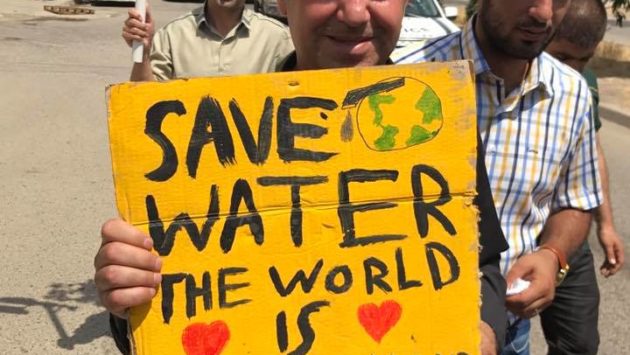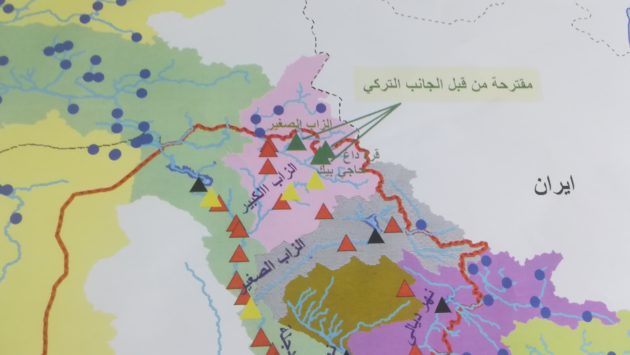Multi-Billion Dollar Budget Needed To Keep Iraq’s Water Flowing
Ibrahim Saleh, NIQASH, 14 June 2018
In Baghdad, locals have been fretting about dramatic falls in the level of the Tigris river. The government has a plan. Only problem is, that plan requires billions in funding that Iraq does not have.
The passengers in the small bus all peer out anxiously as the vehicle crosses the Sanak bridge – the name used by locals for the Rashid bridge which spans the Tigris river in the middle of Baghdad. They’re not worried about the bridge though, they’re worried about the water levels.
“It’s actually very low,” one passenger says to another.
“We should expect that,” his travelling companion replies, “they are trying to drain the water – and the life – out of Iraq.”
Salah al-Jibouri is the 47-year old driver of the minibus. The passengers call him Uncle Salah. And he’s been driving this route for years. At the beginning of every Iraqi summer, he always hears these same conversations about the amount of water in the Tigris river. But this time, he says resignedly, it’s more serious and people are really worried.
Possibly with good reason. At the time the bus is crossing the bridge, it had only been 24 hours since the Turkish government announced that they had started filling their huge Ilisu Dam to the north. Critics have been talking about the damage that stopping the flow of water in Turkey will do to Iraq for years – but now the problem is clear for all to see, as the Tigris river levels have fallen away dramatically.
Locals could talk about little else. Some Iraqis posted pictures of residents who had been able to walk across the river, which usually requires a boat or a bridge to get over. They were also upset with their own government, which seemed to be confused as to what exactly was going on.
Turkish authorities quickly moved to calm the situation with the Turkish ambassador to Iraq saying that it would take nearly a year to fill the Ilisu dam’s reservoir and the Turkish president Tayyip Erdogan announcing that the filling of the dam had been postponed.
The Iraqi minister for water resources, Hassan al-Janabi, said that the two countries had agreed upon a way for Turkey to fill the dam more slowly, and without stopping as much water flowing into Iraq.
But the problem is far from resolved. Baghdad locals used to worry about flooding in the city during the wetter months. But now, floods are the last thing they need fear. Instead it is the dams being built by neighbouring countries – including Turkey, Iran and Syria – as well as climate change, that are reducing the water flow into their city.
Over two-thirds of Iraq’s water comes from tributaries it shares with neighbouring countries.
“After these dams were built, Iraq’s share of water decreased by more than 45 percent,” says Zafer Abdullah, a consultant for Iraq’s ministry of water resources.
Iraq has agreements with its neighbours about water flow and how much water the different nations need to share. But some of the treaties are not being adhered to, with, for example, the Iranian government reporting that it cannot stick to a previous deal because climate change has decreased the amount of water to be shared.
The solution would not be to build more dams, the Iraqi ministry of water resources, has stated. Iraq’s own dams are underutilized and would store billions more cubic litres, if they could.
The Iraqi authorities say they have a strategy to see them through until 2035, that would provide water for things like drinking and agriculture. It takes into account the decreased amount of water due to climate change as well as the potential for neighbouring countries to keep blocking or diverting rivers.
However, as al-Janabi says, for the plan to work, it requires 24 “urgent and essential” points to be resolved, at the cost of up to US$3 billion. And that is extra funding the Iraqi national budget cannot afford right now.
Original article here.




